Says Patrick Kurp:
Driving home from work one evening last week I listened to an interview on NPR with a writer who has just published her third novel. Her voice is soft and modulated, well suited for radio, a medium that encourages an impression of intimacy with people we will never meet. She gamely answered the interviewer’s questions, acknowledged her plot was inspired by a real crime committed several years ago, and credited her young son with several of the best lines in the novel. The impression she gave, whether the real thing, artifice or some crafted mingling of both, was favorable. I might enjoy a conversation with her, I thought, yet the performance, which consumed more than eight minutes during “drive time,” left me with a mild aftertaste of disgust….
Patrick, a blogger of whom I think highly, then quotes from an essay by L.E. Sissman, a poet and essayist whom we both admire:
In a word, the serious writer must take serious vows if he is to concentrate on his chief aim. A vow of silence, except through his work. A vow of consistency, sticking with writing to the exclusion of other fields. A vow of ego-chastity, abstaining from adulation. A vow of solitude, or at least long periods of privacy. A vow of self-regard, placing the self as writer before the self as personality.
Says D.G. Myers, writing in response to Patrick’s posting:
For a serious writer, there is something vaguely distasteful about the need to market one’s books. Perhaps the source lies in class feeling, an ill-defined condescension to the life of commerce. Or perhaps the source lies in an impatience to get back to writing, the querulous feeling that one is wasting unrecoverable time in the pursuit of something other than literature. Whatever its source, the distaste is real and not to be denied. And when those of us who are serious about writing hear someone publicly talking about her books–hawking her wares instead of letting her prose do all the talking–we realize that we are not hearing about literature at all, but about the acceptable substitutes which are offered to a world not much interested in literature. We experience the same involuntary unease. It is impossible to live wholly for literature, but it is disgusting that we cannot.
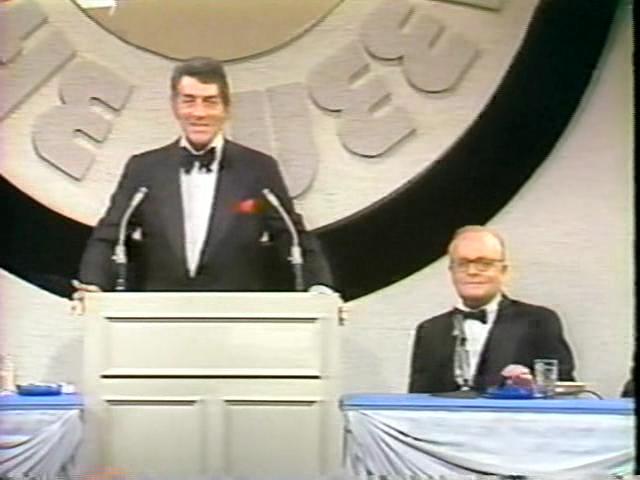 I understand, and up to a point–if not further–I even sympathize. “A boy must peddle his book,” Truman Capote is supposed to have said in explanation of some outrageous public exploit intended to publicize In Cold Blood. I think most people would agree that such activities helped to destroy Capote as a writer. If you get to where you prefer peddling books to writing them, then you’re in the wrong line of work.
I understand, and up to a point–if not further–I even sympathize. “A boy must peddle his book,” Truman Capote is supposed to have said in explanation of some outrageous public exploit intended to publicize In Cold Blood. I think most people would agree that such activities helped to destroy Capote as a writer. If you get to where you prefer peddling books to writing them, then you’re in the wrong line of work.
Nevertheless, I can’t go the rest of the way with my esteemed colleagues. While I don’t claim to be anything like a great artist, I do think that I’m a serious writer. In addition to the countless newspaper and magazine articles that constitute my “day job,” I’ve published three wholly serious biographies, a memoir, and a self-anthology of my cultural journalism, and I’ve also written a play and two opera libretti. What’s more, I’ve peddled my varied literary wares by going on radio and TV, giving lectures and readings, making bookstore appearances, and promoting my work on Twitter, Facebook, and this blog, and I don’t find any of those activities distasteful, not in the least.
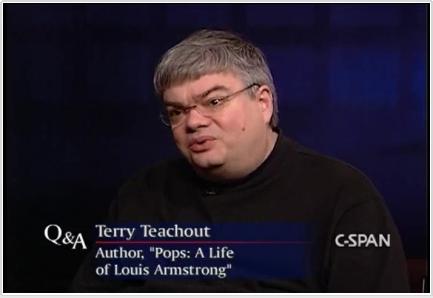 Why do I do them?
Why do I do them?
• To make more money.
• Because I think enough of my work to believe that it ought to be read, or seen, by as many people as possible.
• To contribute (insofar as circumstances permit) to a fuller appreciation of what I write and why I write it.
• To increase the chances that my future books will be published and my future stage works produced.
All of which is a long-winded way of saying that in addition to being a serious writer, I’m also a professional writer, a man who lives by his pen. I come from a middle-class family–my parents didn’t leave me a dime–and so I work for a living. Writing is the work that I do best. It’s my job, not my hobby. In the words of the drama critic James Agate, “A professional is a man who can do his job when he doesn’t feel like it; an amateur is one who can’t when he does feel like it.”
Marketing my work–peddling it, if you like–is part of that job. It doesn’t embarrass me to tell people why I think they might enjoy reading my books or seeing my shows. Sometimes it’s fun, sometimes wearying, sometimes both. On occasion it can be ludicrous. (Yes, I’ve given interviews to TV twinkies who didn’t have the least notion of what the book that we were purportedly “discussing” was about.) But I know that if I don’t do the bad part faithfully, I won’t get to do the good part anymore. I wish it were otherwise, but as Jimmy Durante used to say, “Them is the conditions that prevails.”
 Would I write if I didn’t get paid to do so? Probably, but I wouldn’t have as much time to do so, because I’d be forced to spend eight or more hours a day doing something other than writing, something that would almost certainly be less satisfying. Only a fool would disagree lightly with L.E. Sissman, but when he said that a serious writer should stick with writing “to the exclusion of other fields,” he neglected to mention that he wrote his poems and essays in the interstices of holding down a full-time job as an advertising executive.
Would I write if I didn’t get paid to do so? Probably, but I wouldn’t have as much time to do so, because I’d be forced to spend eight or more hours a day doing something other than writing, something that would almost certainly be less satisfying. Only a fool would disagree lightly with L.E. Sissman, but when he said that a serious writer should stick with writing “to the exclusion of other fields,” he neglected to mention that he wrote his poems and essays in the interstices of holding down a full-time job as an advertising executive.
That’s pretty much what I do, too. The only difference is that I’ve managed to a degree comparatively uncommon among serious writers to fully professionalize my work. No, I couldn’t make a living writing only biographies or plays or operas, but between my day job (which I also take very seriously) and my creative work, I manage to pay the rent.
It is impossible to live wholly for literature, but it is disgusting that we cannot. Disgusting? Really? I don’t see it. Maybe I’d be a better writer if I did, but I’ve never thought that the world owed me a living, least of all for doing the kind of writing that I do. I consider it a blessing that I get paid to do it, and if that means that I have to spend a certain amount of time gripping and grinning, so what? It’s a nice problem to have.
* * *
Jimmy Durante sings “Durante, the Patron of the Arts” on Command Performance in 1944:

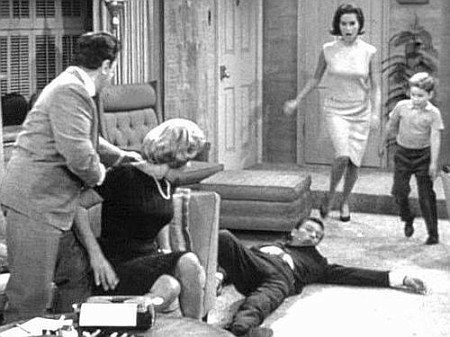 It struck me the other day that my ten-year-old self would be well and truly boggled by the fact that I regularly read tweets by Dick Van Dyke (who tweets as @iammrvandy) and Carl Reiner (who tweets as @carlreiner).
It struck me the other day that my ten-year-old self would be well and truly boggled by the fact that I regularly read tweets by Dick Van Dyke (who tweets as @iammrvandy) and Carl Reiner (who tweets as @carlreiner).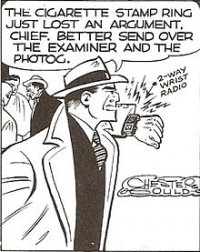 Needless to say, the laptop computer on which I perform this technological miracle would boggle myself when young even more comprehensively. I’m old enough to remember grappling with the notion that Dick Tracy might someday be able to communicate with his colleagues via two-way wrist radio. It was in 1964 that Tracy acquired his first two-way wrist TV, and that really seemed too good to be true.
Needless to say, the laptop computer on which I perform this technological miracle would boggle myself when young even more comprehensively. I’m old enough to remember grappling with the notion that Dick Tracy might someday be able to communicate with his colleagues via two-way wrist radio. It was in 1964 that Tracy acquired his first two-way wrist TV, and that really seemed too good to be true.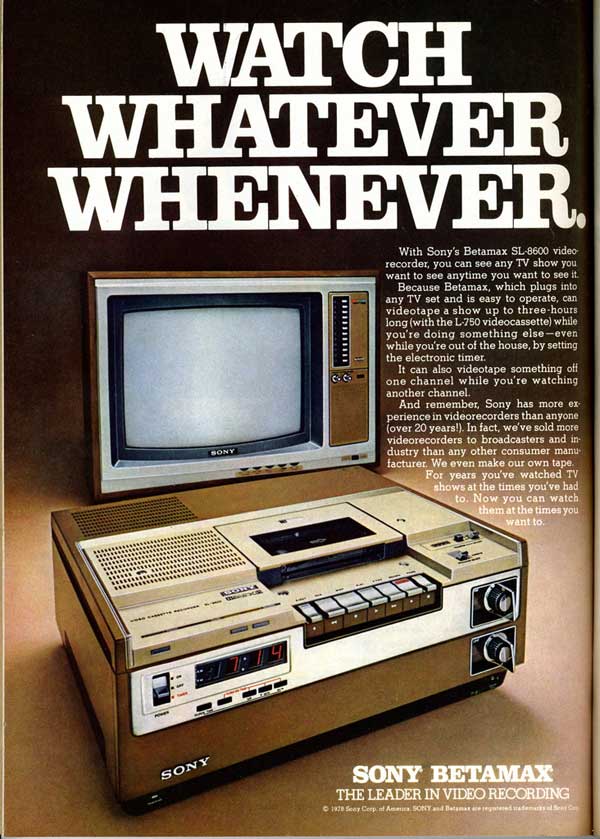 I recently spent a few minutes thinking about how my life today is different than it was in 1966, the year when I turned ten, and the following things came to mind. Other than on vanishingly rare occasions, I no longer:
I recently spent a few minutes thinking about how my life today is different than it was in 1966, the year when I turned ten, and the following things came to mind. Other than on vanishingly rare occasions, I no longer: What’s even more surprising–at least to me–is that I scarcely ever think about any of these things, nostalgically or otherwise. Nor do I miss them, any more than I miss the things that I included in a list of “things I no longer use, do, or see” that I posted in this space
What’s even more surprising–at least to me–is that I scarcely ever think about any of these things, nostalgically or otherwise. Nor do I miss them, any more than I miss the things that I included in a list of “things I no longer use, do, or see” that I posted in this space 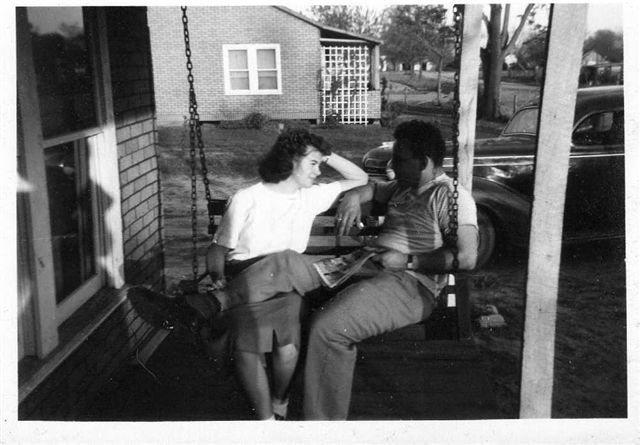 This is how I like to remember them, young and in love, the way they still looked when I was a child, though by then they were already starting to show visible signs of wear and tear. I didn’t come along until they’d been together for eight years, at which point they knew in their bones that married life–adult life–was wholly unlike what they’d envisioned.
This is how I like to remember them, young and in love, the way they still looked when I was a child, though by then they were already starting to show visible signs of wear and tear. I didn’t come along until they’d been together for eight years, at which point they knew in their bones that married life–adult life–was wholly unlike what they’d envisioned.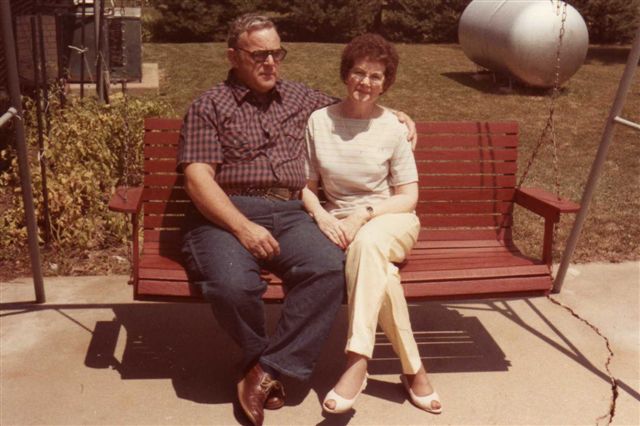 This is how they looked in middle age, just before illness started to carve its long furrows on their faces. They still liked to sit together on porch swings–they always would–and there was no longer any doubt in their minds that they would spend the rest of their lives together, just as there is no doubt in my mind that they were right to do so.
This is how they looked in middle age, just before illness started to carve its long furrows on their faces. They still liked to sit together on porch swings–they always would–and there was no longer any doubt in their minds that they would spend the rest of their lives together, just as there is no doubt in my mind that they were right to do so.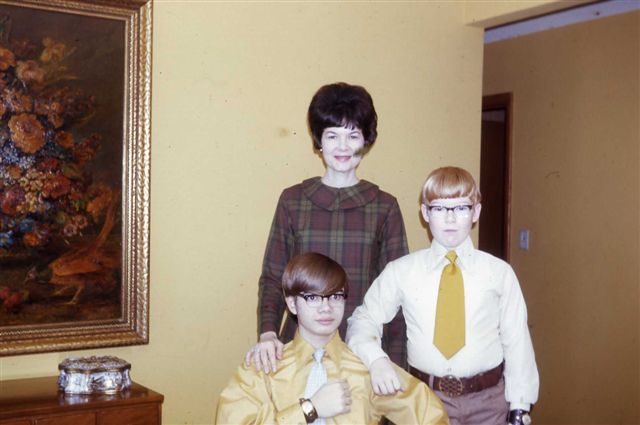 “What’s up?” he asked.
“What’s up?” he asked.